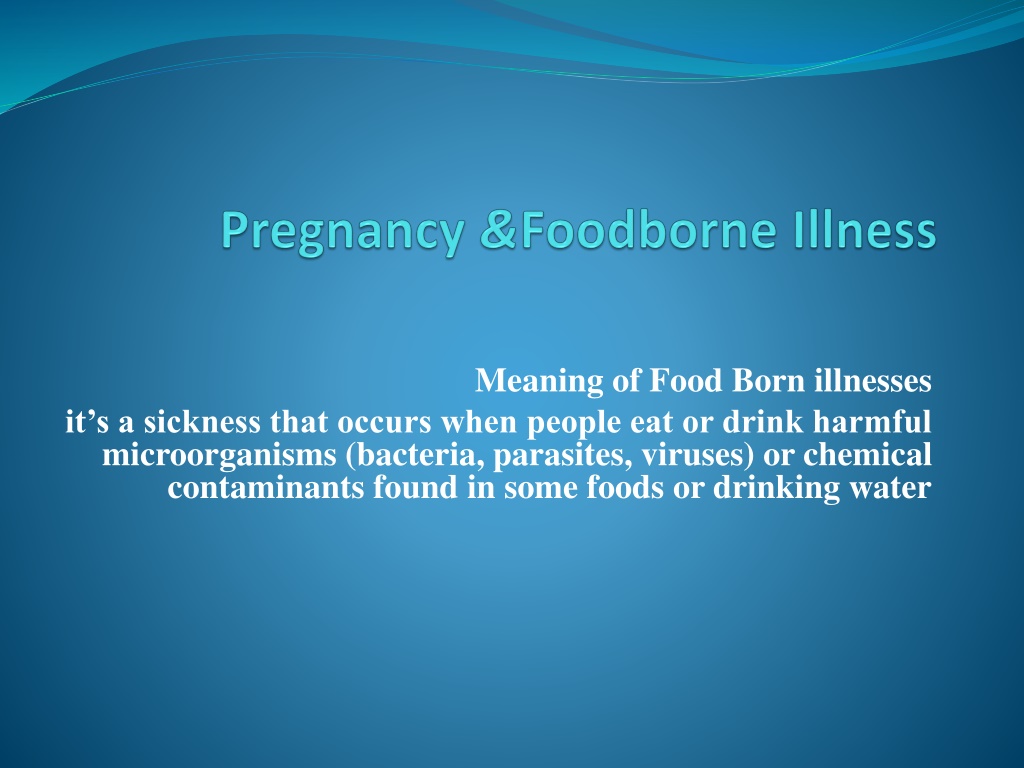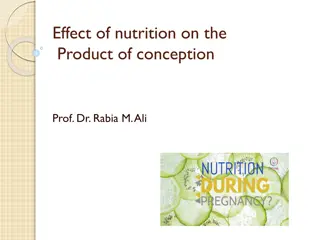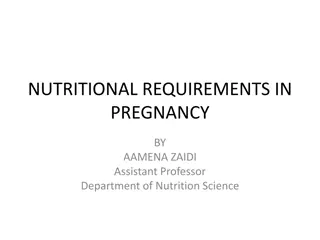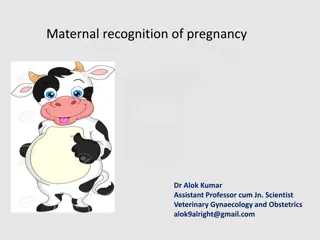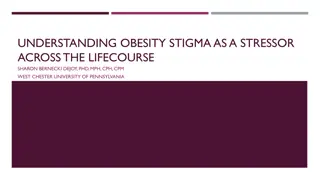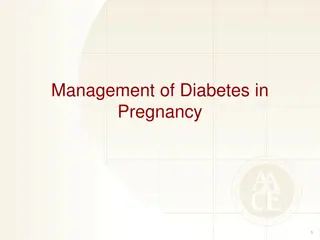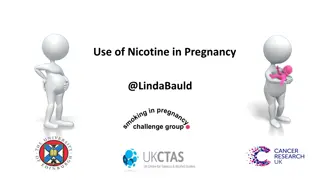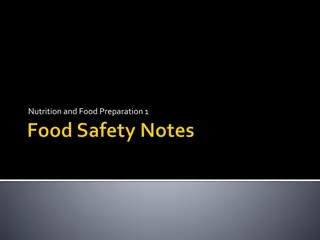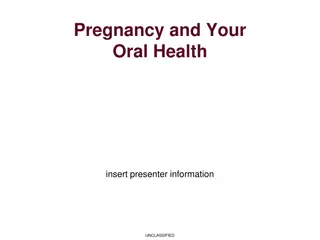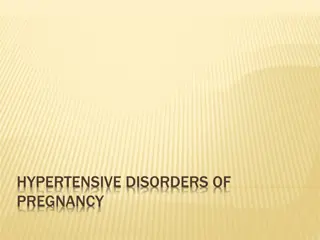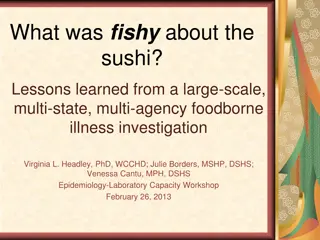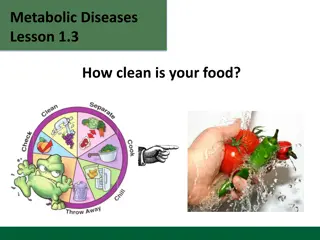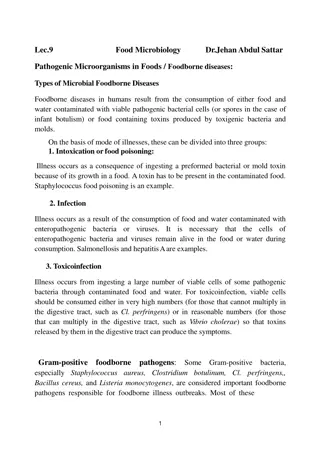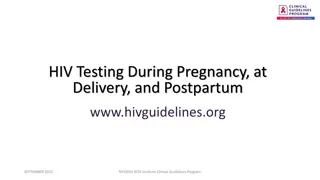- Risks of Foodborne Illnesses During Pregnancy
- Pregnant women are at high risk of foodborne illnesses due to weakened immune systems. Such illnesses can lead to serious health issues for both mother and fetus, including miscarriage and premature delivery. Symptoms may include stomach-related discomfort, vomiting, and diarrhea. Immediate medical attention is crucial, and treatment involves maintaining hydration and possibly using safe antibiotics. It is essential to consult healthcare providers promptly in case of illness post-consumption.
- - Pregnancy risks
- Foodborne illnesses
- Health complications
- Treatment options
- Immune system vulnerability
Download Presentation

Please find below an Image/Link to download the presentation.
The content on the website is provided AS IS for your information and personal use only. It may not be sold, licensed, or shared on other websites without obtaining consent from the author. Download presentation by click this link. If you encounter any issues during the download, it is possible that the publisher has removed the file from their server.
E N D
Presentation Transcript
Meaning of Food Born illnesses it s a sickness that occurs when people eat or drink harmful microorganisms (bacteria, parasites, viruses) or chemical contaminants found in some foods or drinking water
Physiology of pregnancy Pregnant women and their growing fetuses are at particularly high risk for foodborne illness because the mother s immune system is weakened during pregnancy. This is a natural condition, which help the mother and fetus get along with each other. However, this weakness also makes it harder for the mother s body to fight off harmful foodborne microorganisms
Effect of Food born illnesses Foodborne illness during pregnancy can cause serious health problems, miscarriage,premature delivery, or even death of the mother. Different microorganisms or chemical contaminants can affect the mother and fetus or newborn in a variety of ways.
Effect on Foetus: Harmful foodborne microorganisms or some metals in food can cross the placenta and infect the developing fetus. As a result, the infected fetus or newborn can experience a wide range of health problems or even death.
Symptoms of Food born illnesses Symptoms vary, but in general, a person might get sick to her stomach, vomit, or have diarrhea. Sometimes foodborne illness is confused with the flu because the symptoms can be flu-like with a fever, headache, and body aches.
How to handle it Check with their doctor or health care provider immediately. And, if they become ill after eating out, they should also call their local health department, so the department can investigate to see if there s a serious foodborne illness outbreak in the area..
Treatment for Food born illnesses Maintaining hydration is an important part of the treatment,especially if the mother is vomiting or has diarrhea. Antibiotics that are safe to use during pregnancy may be prescribed by a doctor to get rid of the mother s infection. In most cases, the antibiotics also prevent infection of the fetus or newborn. Antibiotics may also be given to babies who are born with foodborne illness.
How to Prevent Food Born illnesses Clean Hands Are Key! How to Wash Hands: Wet hands thoroughly with warm water and add soap. Thoroughly scrub hands, wrists, fingernails, and in between fingers for at least 20 seconds. Rinse, then dry hands with a clean cloth towel or use a paper towel so the germs are thrown away. When to Wash Hands: Before and after handling food. After using the bathroom, changing diapers, or handling pets. Keep these Handy . . . Make sure there are handwashing soap and paper towels or a clean cloth towel at every sink. If soap and water aren t available, alcohol-based wipes or gel formulas are effective for sanitizing hands.
How to Prevent Food Born illnesses Safely Separate Separate raw meat, poultry, and seafood from ready-to-eat foods in the grocery shopping cart, refrigerator, and while preparing and handling foods at home. Consider placing these raw foods inside plastic bags in your grocery shopping cart to keep the juices contained. Seal It To prevent juices from raw meat, poultry, or seafood from dripping onto other foods in the refrigerator, place these raw foods in sealed containers or sealable plastic bags. Lather Up Thoroughly wash cutting boards, dishes, and utensils (including knives) with soap and hot water after they come in contact with raw meat, poultry, seafood, eggs, and unwashed fresh produce. Clean Your Plate Place cooked food on a clean plate for serving. If cooked food is placed on an unwashed plate that previously held raw meat, poultry, or seafood, bacteria from the raw food could contaminate the cooked food.
How to prevent Food Born illnesses Heating foods to the right temperature for the proper amount of time kills harmful bacteria that cause foodborne illness. Use a food thermometer to check the internal temperature. Usually between 40 and 140 F (4 and 60 C) For food safety, keep food below or above the danger zone. Remember the2-Hour Rule: Discard any perishables (foods that can spoil or become contaminated by bacteria if unrefrigerated) left out at room temperature for more than two hours. When temperatures are above 90 F (32 C), discard food after one hour.
How to Prevent Food Born illnesses At room temperature, harmful bacteria can grow rapidly in food.The more bacteria there are, the greater the chances of becoming sick.Cold temperatures keep most harmful bacteria from multiplying, sokeep perishable foods in the refrigerator. Your refrigerator should register at 40 F (4 C) or below and the freezer at 0 F (-18 C). Place a refrigerator thermometer in the refrigerator, and check the temperature periodically.
